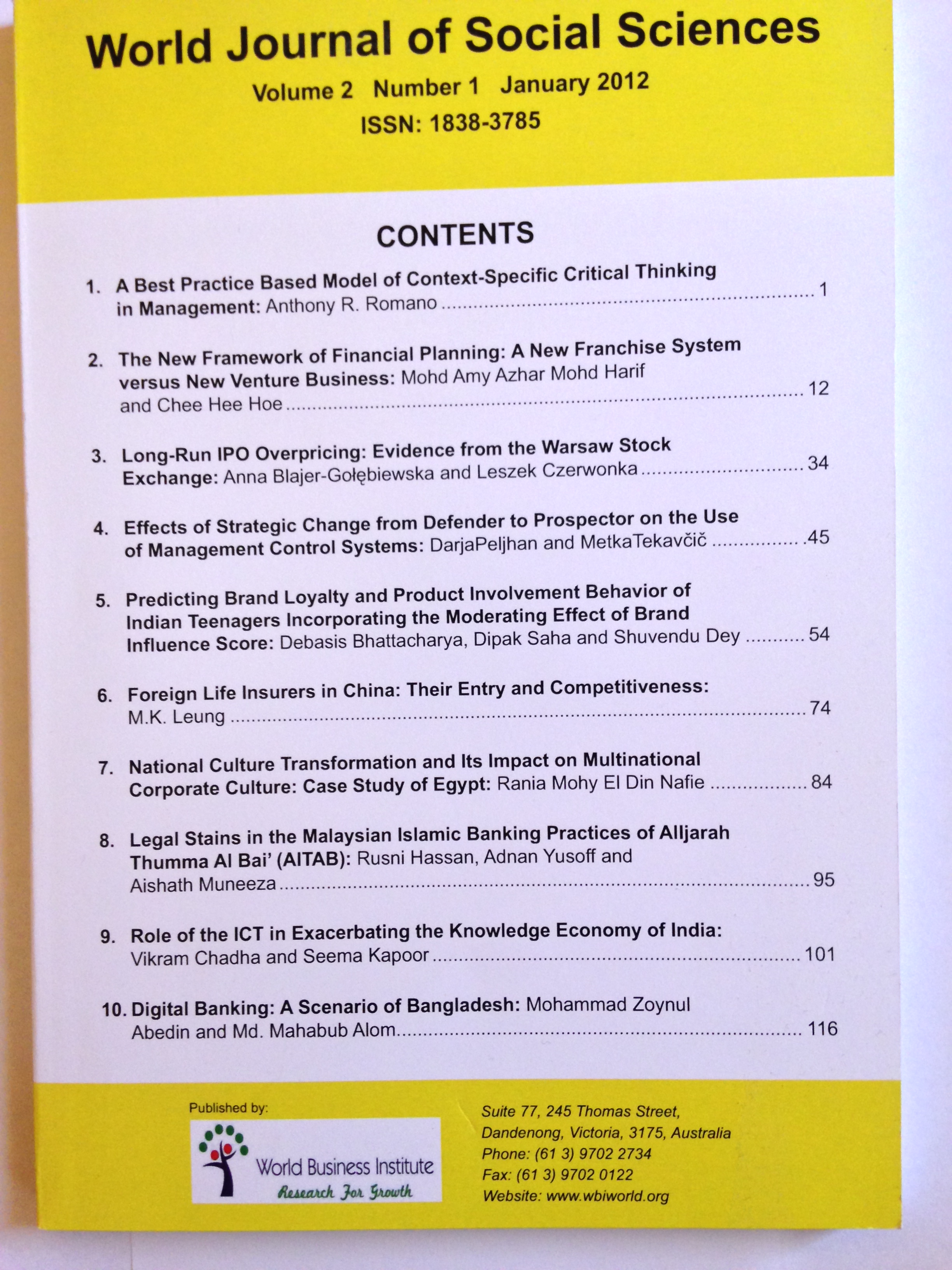March 2018 (World Journal of Social Sciences)
Total Articles - 6

